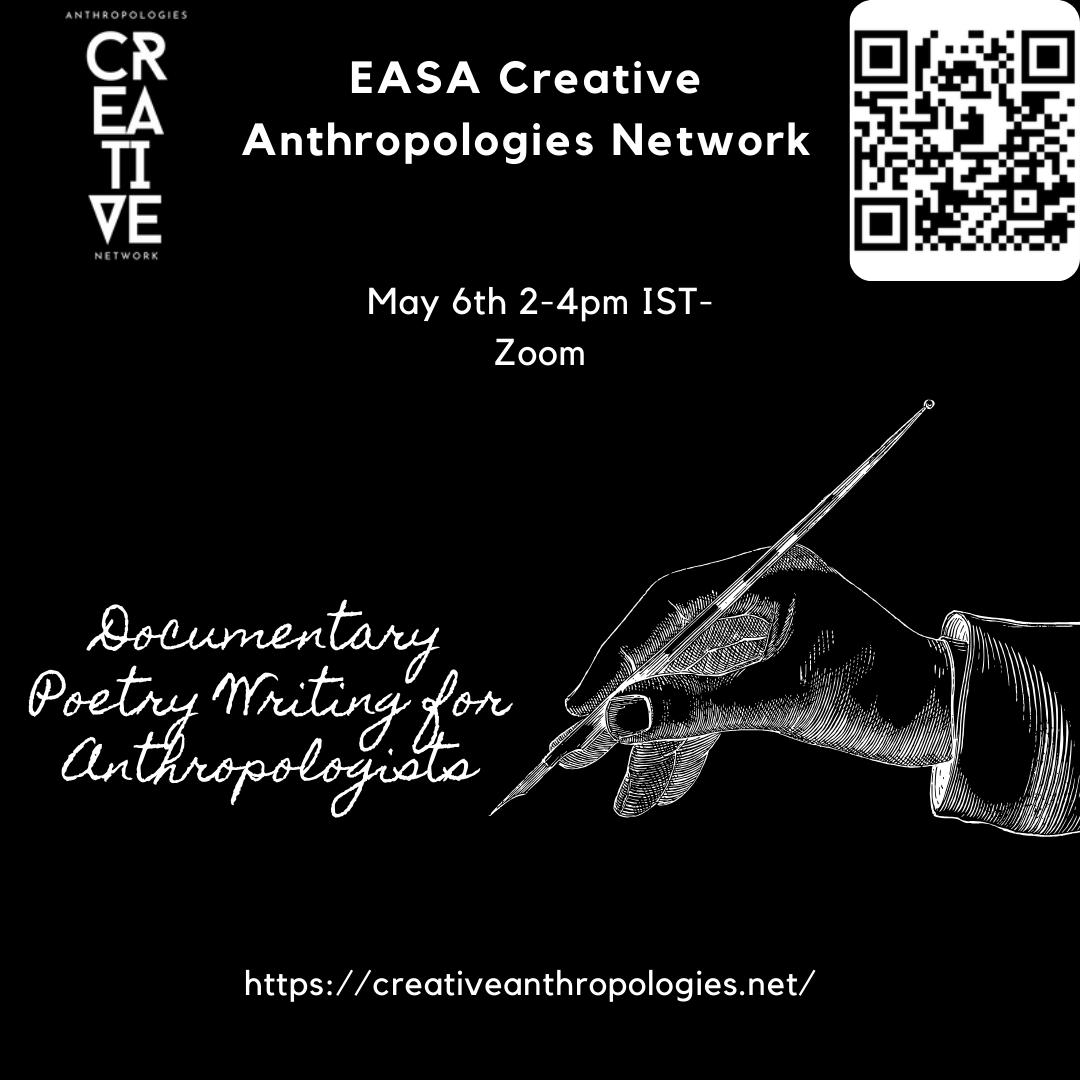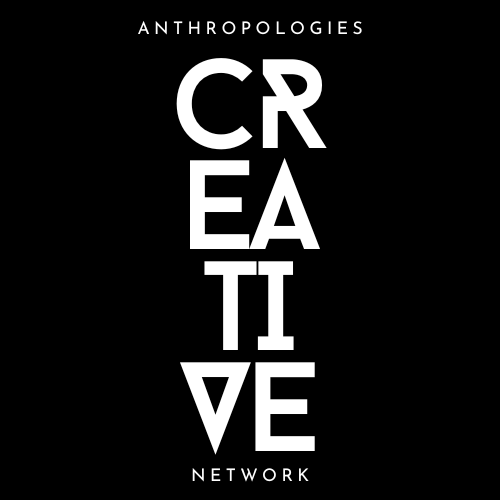CAN Network events
Future Events
Documentary Poetry for Anthropologists
Online workshop
What is Documentary Poetry?
Documentary poetry occupies a space between the archival and the lyrical, the factual and the poetic. It transforms primary sources—interviews, government reports, treaties, field notes, archival fragments, or even mundane objects—into poetic forms that invite us to see differently. These sources are not merely reproduced but reimagined, brought to life through a creative interplay of voice, silence, and texture.
By engaging with documentary poetry, we can expose the silences that haunt official records, unravel contradictions buried in historical and contemporary documents, and generate new possibilities for understanding the traces left by histories, memories, and encounters. This poetic form creates a space where the fragmented, the unspoken, and the incomplete can be brought to the surface and considered anew, offering a profound opportunity to grapple with what it means to represent and interpret human experience.
For anthropologists, documentary poetry provides a powerful creative method for engaging with research materials. It invites us to hold tension rather than resolve it, to approach representation not as a means to fix or contain knowledge but as a way to critically and imaginatively expand it. Through this form, we can think differently about how we work with the worlds we study, how we address ethical complexities, and how we bring forward marginalized narratives in ways that are attentive, evocative, and just.
What to Expect
This workshop will provide both a theoretical and practical introduction to documentary poetry (readings will be circulated in advance). Together, we will reflect on its potential to illuminate issues of social justice, historical memory, and human rights, while also exploring its ethical and creative possibilities. We’ll look at examples of writers and poets who have used this form to reckon with systemic violence, displacement, and historical erasure, and we will experiment with our own materials to craft poetic responses.
Examples of Documentary Poetry:
- M. NourbeSe Philip’s Zong!: Transforms the transcript of an 18th-century court case about the killing of enslaved Africans aboard the Zong into a haunting, fragmented meditation that exposes the violence of the archive.
- Muriel Rukeyser’s The Book of the Dead: Draws on testimonies, interviews, and government reports to document the Gauley Bridge disaster of the 1930s, giving voice to miners and their families.
- Mai Der Vang’s Yellow Rain: Combines survivor testimonies, U.S. government reports, and Hmong oral histories to explore the lingering impacts of chemical warfare in Laos.
- Caroline Bergvall’s Drift: Weaves Old English texts, shipping forecasts, and reports on refugee crises in the Mediterranean to explore themes of displacement and survival.
- Layli Long Soldier’s Whereas: Responds to the language of the U.S. Congress’s apology to Native peoples, crafting counter-narratives that critique erasure and reclaim agency.
What to Bring
Participants are encouraged to bring one document or object to work with during the workshop. Possible materials include:
- A field note or journal entry
- An interview transcript or oral history
- An archival fragment, treaty, or historical document
- A newspaper article or government report
- A photograph or image
- A piece of personal writing or correspondence
This list is just a guide—documentary poetry can emerge from any material that resonates with your research or practice.
Workshop Details
- Date: Monday, May 6th, 2025
- Time: 2:00–4:00 PM Irish Standard Time (IST)
- Where: Online via Zoom (link provided upon registration)
- Hosted by: EASA Creative Anthropologies Network (CAN)
- Capacity: Limited to 15 participants
Sign Up Now
Spaces are limited to ensure a collaborative and intimate environment. Please sign up here or scan the QR code below to register:

This workshop offers an opportunity to rethink how we approach our research materials and explore the imaginative and ethical potential of documentary poetry. Whether you are new to poetry or experienced in creative practices, we look forward to creating with you.
Past Events
The Ethnographic Salon: Performances in Doing and Undoing with Anthropology
Fiona Murphy (Dublin City University)
Eva van Roekel (Vrije Universiteit Amsterdam)
Alisse Waterston (City University of New York, John Jay College)
Short abstract:
The Ethnographic Salon is a creative lab that features experimentation and performative exchange of artistic work-in-progress inspired by field experiences that ill-fit academic writing and theorizing. The aim of the Ethnographic Salon is to inspire innovation in ways that surprise and transform the discipline.







